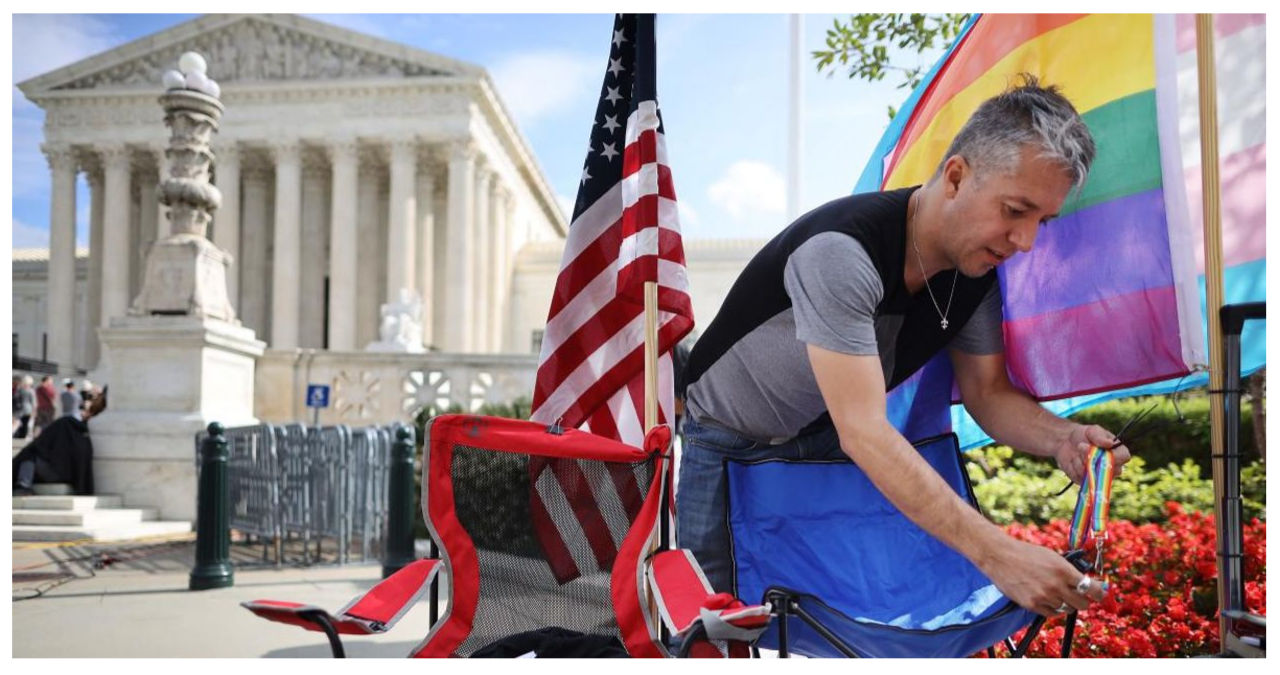Red states are actively working to prevent a federal agency from extending legal safeguards to transgender workers.
Eighteen states took legal action against the Equal Employment Opportunity Commission (EEOC) by filing a lawsuit in federal court in Knoxville, Tennessee. Their argument revolves around the EEOC’s issuance of legal guidance, which they believe exceeds its authority. Specifically, they contend that the guidance requiring employers to accommodate transgender workers, including the use of preferred pronouns and access to bathrooms aligning with their gender identity, goes beyond what is legally permissible.
Employers may now be held accountable for workplace harassment under federal anti-discrimination law if they use the wrong pronouns or names when addressing their employees or deny them access to the appropriate bathroom facilities.
The guidance serves as a reference for how the EEOC, the enforcer of workplace protections, will interpret harassment claims. While not legally binding, it provides valuable insight into their approach.
Conservative backlash hits Pride: Target to limit sale of Pride collection in select stores
Tennessee Attorney General Jonathan Skrmetti criticized the EEOC for misusing federal power. He argued that the agency’s actions are aimed at eradicating women’s private spaces and penalizing the use of biologically-accurate pronouns. Skrmetti further expressed concerns about the negative impact on Tennessee employers, who may face complaints from the EEOC and potential lawsuits from employees.
In its recent update on workplace harassment, the EEOC has addressed transgender discrimination, aligning its position with the 2020 Supreme Court ruling. This ruling determined that discrimination against gay and transgender employees constitutes unlawful sex bias. The EEOC’s legal guidance now reflects this important development.
The states argue in their lawsuit that federal law safeguards transgender workers against termination but does not mandate employers to provide accommodations for them. They believe that this particular matter should be determined by Congress and the states.
According to the lawsuit, the Court ruled that it is illegal to terminate an individual based on their sexual orientation or gender identity. The Court’s decision specifically pertained to discrimination in the workplace and did not address other workplace activities or employment actions.
Several states, including Alabama, Georgia, Indiana, Missouri, and Ohio, joined the lawsuit.
Last month, a lawsuit was filed challenging an EEOC rule that grants the same legal protections to workers who have had abortions as it does to pregnant workers or those who recently gave birth.
Last year, the EEOC announced its intention to revise its legal guidance, which would encompass sexual orientation and gender identity. This decision has faced opposition from conservative and religious groups, who argue that the guidance contradicts state laws.
The significance of this guidance lies in its role as a blueprint for the enforcement of federal anti-discrimination laws by the EEOC. It is noteworthy that the commission had not revised its guidance on harassment since 1999.
The EEOC has not yet responded to a request for comment.
According to EEOC Chair Charlotte Burrows, who was appointed by President Joe Biden, the newly issued EEOC guidance aims to ensure that individuals have a clear understanding of their rights and responsibilities in the workplace.
In a press release, Burrows stated that harassment, whether it occurs in person or online, continues to be a significant problem in workplaces across America. He emphasized that the EEOC’s revised guidance on harassment serves as a valuable and all-encompassing tool, consolidating the best strategies for preventing and addressing harassment while also shedding light on recent legal developments.



